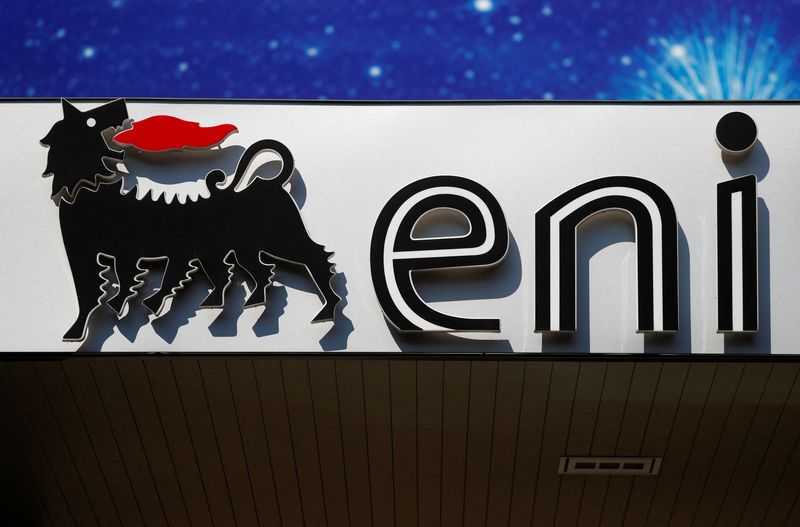(Reuters) - Russian gas flows to Europe remain stable, but Western sanctions over Moscow's invasion of Ukraine and voluntary actions by buyers are starting to impact its oil sales.
Some European buyers appear to be shunning Russian oil to avoid reputational damage or possible legal troubles despite the fact that only the United States and a few of its allies have announced outright import bans so far.
Such self-sanctioning in Europe is expected to become more evident in April, after volumes in March are delivered under previously signed contracts.
The International Energy Agency estimates that some 2.5 million barrels per day (bpd) of Russian oil and products - of which crude accounts for 1.5 million bpd - may not find their way to market beginning in April.
Following are actions announced by countries and major European energy companies:
AMPOL
Australian refiner Ampol has said the company has not bought Russian crude oil or products since the conflict started.
BP (NYSE:BP)
BP said on Feb. 27 it would abandon its stake in Rosneft, facing $25 billion of writedowns.
On Feb. 28 BP cancelled all fuel oil loadings from the Russian Black Sea port of Taman, sources familiar with the matter said.
BRITAIN
Britain said it would phase out imports of Russian oil by the end of 2022.
BULGARIA
Bulgarian refiner LUKOIL Neftochim Burgas, owned by Russian oil company LUKOIL, mainly operates on Russian crude oil.
Bulgarian Deputy Prime Minister Assen Vassilev has told parliament that the refinery was already processing 40% non-Russian crude oil and could switch to refining 100% non-Russian crude if need be. There are no plans to cut Russian intake.
CANADA
Canada said on Feb. 28 it would ban Russian crude oil imports, and that it was also looking into banning refined oil products. Canada has not imported any Russian crude oil since 2019, but in 2021 it imported naphtha, diesel and gasoline.
ENI (MI:ENI)
Energy group Eni, 30.3% owned by the Italian government, announced on March 9 it was suspending purchases of oil from Russia.
EQUINOR
Norway's majority state-owned energy firm Equinor has stopped trading Russian oil as part of its plan to wind down its operations in Russia, the company told Reuters on March 10.
Equinor added on March 14 that it had contractual commitments under which it was to receive four oil cargoes in March.
EUROPEAN UNION
The European Union, which relies on Russia for 40% of its gas and 27% of its crude oil imports, is split on whether to follow the United States and Britain in curbing Russian intake.
The European Commission has promised to present a plan by the end of May to make the EU independent of Russian fossil fuels.
HELLENIC PETROLEUM
Greece's biggest oil refiner, in which the state owns a 35.5% stake, has said that Russian crude accounted for about 15% of its crude feed in the second half of 2021 and can be replaced by similar grades mostly from the Middle East.
The company clinched an initial deal for additional crude oil supplies from Saudi Arabia, two sources from the refiner said on March 15.
MAERSK
Denmark's shipping group Maersk has stopped buying Russian oil for its vessels as a consequence of Russia's invasion of Ukraine, Maersk Chairman Jim Hagemann Snabe told the company's annual shareholder meeting on March 15.
MOL
Hungarian oil group MOL said on March 15 that Russia's Druzhba pipeline continued to supply crude oil. Prime Minister Viktor Orban has repeatedly said Hungary opposes sanctions on Russian oil and gas.
NESTE
Finnish refiner Neste said on Feb. 28 it had decided to replace most of its Russian purchases with crude from other regions, and not make any new deals to buy petroleum products from Russia. Previously Neste had purchased two-thirds of its crude oil from Russia.
NETHERLANDS
Neither the Dutch government nor Rotterdam Port have banned Russian oil. Around 30% of the oil that goes through the port of Rotterdam is Russian. Around 20 million tons of Russian oil products go through the port annually.
OMV
The Austrian oil and gas firm told Reuters on March 11 it was not refining any Russian crude grades in its European refineries, and had no intention to do so in the "near future". The company said it had processed "minor quantities" of Russian crude in the past.
PKN Orlen
Poland's largest refiner told Reuters on March 11 it was continuing to buy Russian crude for its refineries in Poland, Lithuania and the Czech Republic to meet the region's energy needs, but was prepared for "any scenario", including a complete suspension of Russian supply.
PREEM
Sweden's largest refiner, owned by Saudi billionaire Mohammed Hussein al-Amoudi, told Reuters on March 11 that it had "paused all new orders of Russian crude oil pending sanctions". Imports from Russia, which account for about 7% of its crude purchases, were being replaced by oil from the North Sea, the company said.
REPSOL
Spanish energy firm Repsol (OTC:REPYY) has stopped buying Russian crude oil in the spot market, a company spokesperson said.
RWE
German utility RWE said on March 15 it would stop new supply deals for Russian gas or oil.
SHELL
The world's largest petroleum trader, Shell (LON:RDSa) said on March 8 that it would stop buying Russian crude and phase out its involvement in all Russian hydrocarbons.
Rosneft said last November it had acquired Shell's stake in Germany's PCK oil refinery, which receives pipeline oil from Russia. The transaction remains subject to regulatory approval.
TOTALENERGIES
France's TotalEnergies said on March 7 it had stopped buying oil from Russia, although one of its landlocked refineries in Germany continued to receive Russian crude by pipeline.
TURKEY
Turkey is still buying Russian crude and related products and has no plans to stop. It opposes sanctions on Moscow.
VIVA ENERGY
Australian refiner Viva Energy, which operates in Australia under the Shell brand, has stopped buying Russian crude oil.

UNITED STATES
The United States imposed a wide ban on Russian oil and gas imports on March 8.